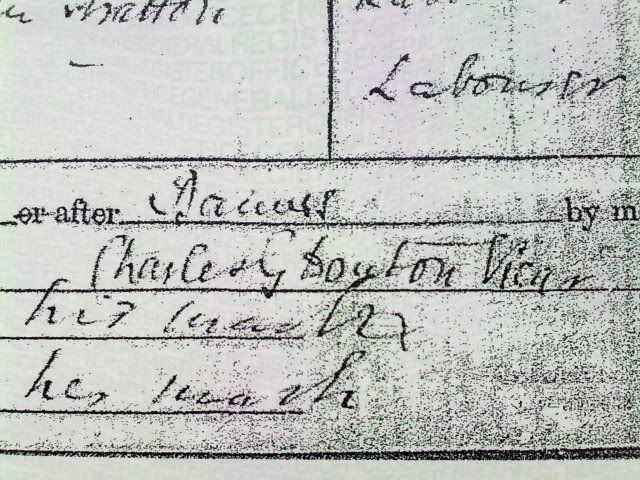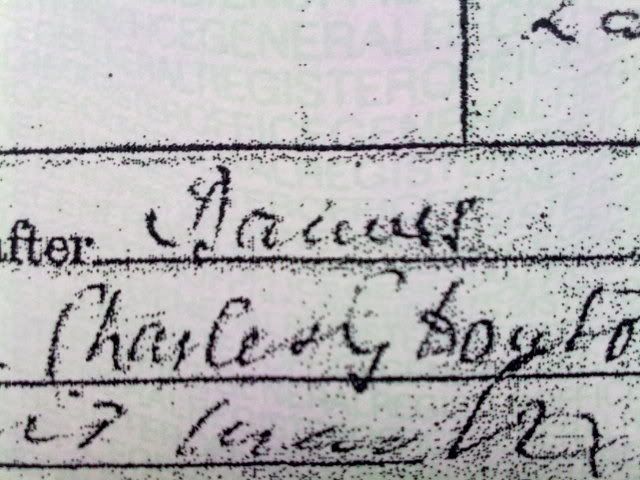MarkCDodd wrote:Abandonement does not allow the title of "Widow" to be used.
He could have been missing from 1876 onwards if he fathered those two children in the 1881 census.
Both children will be Stratton, not Usher.
The unamed child I pointed out before will be Jesse. Most census, including the 1911, point to the 1875 birth.
This will be Albert. All census after 1881 and his death all point to a 1877-1878 birth.
Civil Registration event: Birth
Name: STRATTON, Albert
Registration District: Luton
County: Bedfordshire
Year of Registration: 1877
Month of Quarter: Apr-May-Jun
Mother's Maiden Name: Not available before 1911 Q3
Volume No: 3B
Page No: 471
I think this Albert Stratton is the one aged 4 in 1881 census, born Luton, parents Arthur and Sarah Stratton. I don't think it is the son of Frances.
Abandonment does not allow the title of widow to be used - I agree with that, but it doesn't prevent it either and nothing stops an abandoned wife calling herself a widow. Except, of course if the truth is known.
And that is the problem here, I admit. The 1881 census enumerator was, I think, Reuben J Kemp and he is down as Parish Clerk. In 1891 he is also called parish clerk and "church" has been added afterwards. So he would seemingly have been around for the 1881 marriage and in fact is one of the witnesses.
I can only see two options:
1) Between the 1881 census and the 1881 marriage, proof of William Stratton's death was provided.
2) Between the 1881 census and the 1881 marriage it was accepted that William Stratton had been absent for so long, with no contact with any of the people he might be expected to contact, and he was presumed dead.
It says here
http://www.jstor.org/pss/751797 "The Rule of English Law - in England the general law as to preumption of death is thus stated in Stephen's Digest of the Law of Evidence: A person shown not to have been heard of for seven years by those (if any) who if he had been alive would naturally have heard from him is presumed to be dead unless the circumstances of the case are such as to account for his not being heard of without assuming his death".
It then goes on, I think, to say that if the wife remarries and he subsequently shows up then the second marriage is invalid, any children illegitimate, but the wife n ot guilty of bigamy.
As with most things legal it is so vague that you would need a lawyer to argue your case! But it seems to me that if William went AWOL then he might have been presumed dead and then she could remarry in local church as a widow. Stephen's Digest was published in 1877 and I don't think this 7 year thing actually had any legal status in England but it might have been used to justify a marriage when the couple had been "living in sin" for several years.
There is a fairly recent example posted here
http://www.rootschat.com/forum/index.ph ... 06116.html"He left my grandmother and my father in 1931, having reluctantly struggled through a 10 year rocky marriage. He was last seen one day in 1934/1935.
Some years later, my grandmother wished to re-marry but had no idea where to find her estranged husband. She was advised by her solicitor to post notices in the newspaper enquiring of his whereabouts. This would have been in London, anywhere between 1937-1941. There was no response. She did re-marry, in March 1941, and on her marriage cert she is given the status of "widow".
I have found no record of her first husband's death.
So perhaps grandma got divorced? Having spoken to the Divorce Registry, I was told that a divorce would not have been granted as it was not known if estranged husband was still living or deceased (no death cert had been found). However, I have not yet had a divorce records searched (expensive as I would have to cover years 1937 to 1941, at least).
After lengthy discussion with various departments of the GRO, I was told there would be no death cert issued because there was no body. No body means no death cert or death registration. As they rightly pointed out, if he had gone missing, he could turn up at any time and then really die, and then what do they do , record his death twice??
But somewhere along the line, my grandmother was ABLE to re-marry because after converting to the Catholic faith she married her Irish beau in 1941 and they lived happily ever after."
But, I'm the first to admit I am being very speculative

I'm not suggesting buying any certificates.
You could try asking Bedfordshire archives about the baptisms post 1813 (the ones up to 1812 seem to have been transcribed but I'm not sure about the later ones) and then try and find someone to do a free lookup.
Given Reuben Kemp's comment on the 1881 census I think it likley that he wrote something somewhere on the occasion of the marriage (since he was Parish Clerk and a witness)but I don't know if that would be in the church register or elsewhere. Tis interesting though


